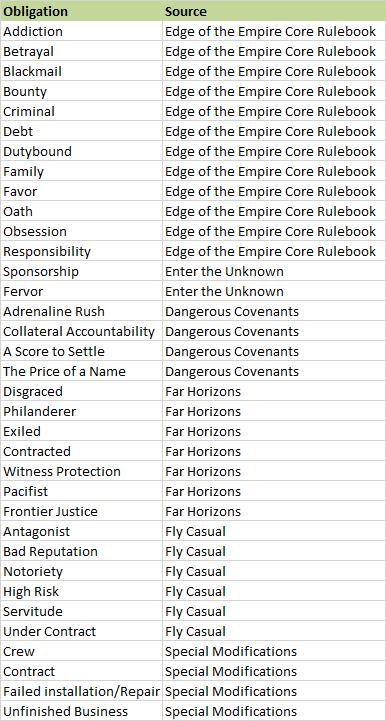I'm working on a campaign where a Jedi, a Clone Trooper, and another character are navigating the aftermath of the Jedi purge. The ARC trooper doesn't have an inhibitor chip so he didn't take part in Order 66, and both he and the Jedi faked their deaths, so they don't really have the Empire on their tails (though they might eventually) The clone has the Obligation Oath, as he has sworn to never kill clones, if he can avoid it, and the other character is accounted for, but what about the Jedi? I want him to have a Morality (for obvious reasons) but I think he should also have an Obligation. However, I do not think any of the Obligations in the CRB make sense (and I don't have any EotE supplements) because any of them that might would pertain to other PCs, so I was wondering about custom Obligation or Obligation from splat books, do you have any ideas? I don't think it makes a ton of sense for him to have something that, when triggered, would necessarily end with someone learning his secret or putting the Empire on his trail, as he is officially dead, and aside from that there wouldn't really be a way to pay it down or increase it.
If I were to do that, I would think that I give him a "persecuted" Obligation or whatever, and if it increases, he would be at greater risk for discovery, and if he can decrease it he becomes less at risk.
What are your ideas though? I've been struggling to figure this one out.
